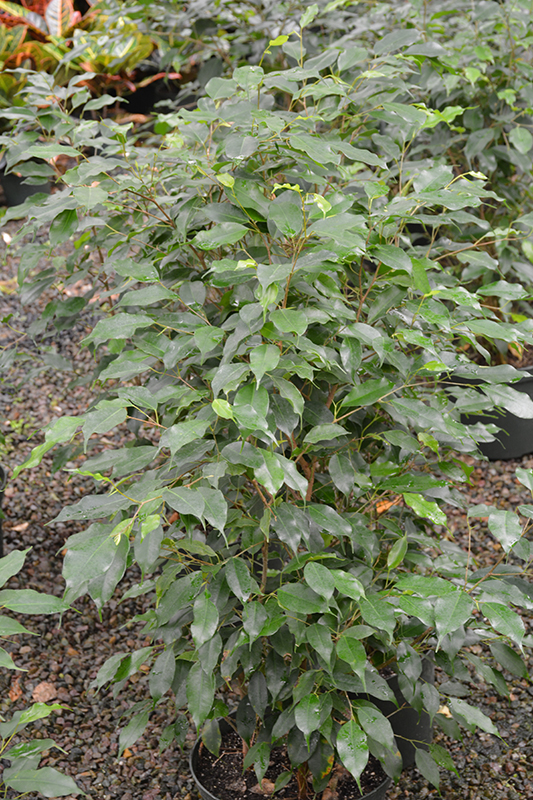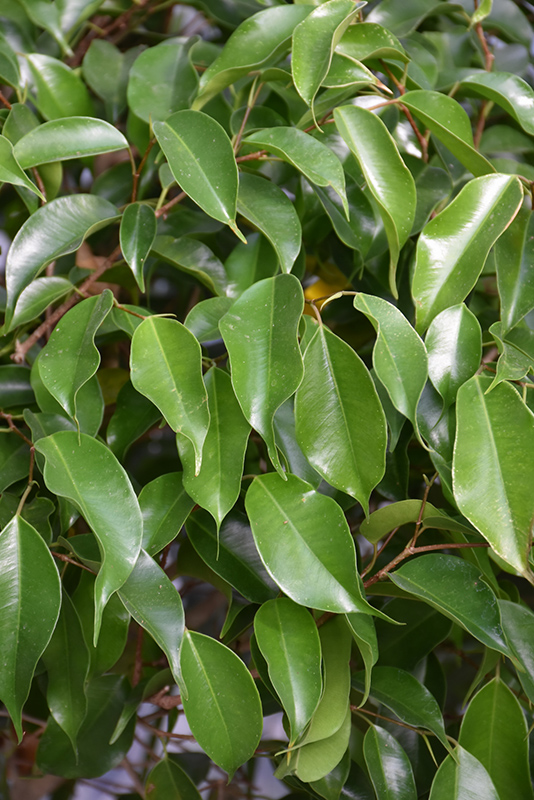Height: 7 feet
Spread: 4 feet
Sunlight:
![]()
![]()
Other Names: Benjamin's Fig, Ficas Tree
Description:
An attractive indoor accent tree with beautiful, glossy green foliage; moving plant will cause leaf drop but it will recover; water regularily and keep in warm temperatures
Features & Attributes
Weeping Fig's attractive glossy oval leaves emerge chartreuse, turning dark green in color throughout the year on a plant with a round habit of growth.
This is a multi-stemmed houseplant with a more or less rounded form. This plant may benefit from an occasional pruning to look its best.
Planting & Growing
When grown indoors, Weeping Fig can be expected to grow to be about 7 feet tall at maturity, with a spread of 4 feet. It grows at a medium rate, and under ideal conditions can be expected to live for approximately 50 years. This houseplant will do well in a location that gets either direct or indirect sunlight, although it will usually require a more brightly-lit environment than what artificial indoor lighting alone can provide. It does best in average to evenly moist soil, but will not tolerate standing water. The surface of the soil shouldn't be allowed to dry out completely, and so you should expect to water this plant once and possibly even twice each week. Be aware that your particular watering schedule may vary depending on its location in the room, the pot size, plant size and other conditions; if in doubt, ask one of our experts in the store for advice. It is not particular as to soil type or pH; an average potting soil should work just fine.
There are many factors that will affect the ultimate height, spread and overall performance of a plant when grown indoors; among them, the size of the pot it's growing in, the amount of light it receives, watering frequency, the pruning regimen and repotting schedule. Use the information described here as a guideline only; individual performance can and will vary. Please contact the store to speak with one of our experts if you are interested in further details concerning recommendations on pot size, watering, pruning, repotting, etc.
-- THIS IS A HOUSEPLANT AND IS NOT MEANT TO SURVIVE THE WINTER OUTDOORS IN OUR CLIMATE --


